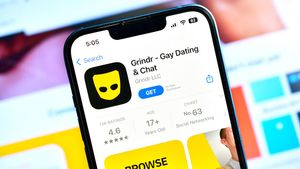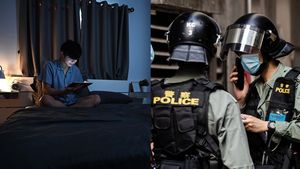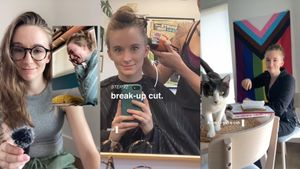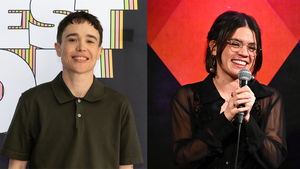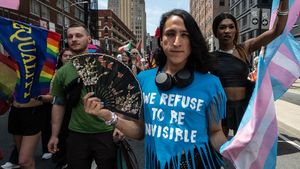
Treatment GuideJust DiagnosedSex & DatingAfrican AmericanStigmaAsk the HIV DocPrEP En EspañolNewsVoicesPrint IssueVideoOut 100
CONTACTCAREER OPPORTUNITIESADVERTISE WITH USPRIVACY POLICYPRIVACY PREFERENCESTERMS OF USELEGAL NOTICE
© 2025 Pride Publishing Inc.
All Rights reserved
All Rights reserved
Scroll To Top
By continuing to use our site, you agree to our Privacy Policy and Terms of Use.
For nearly 20 years my campaign to mobilize people against HIV has kept me constantly on the road. I've been across the country and around the world more times than I can count. These are not pleasure trips. Traveling takes a lot out of me, and living with HIV is hard enough without the stress of shifting time zones, skipped meals, and time away from family. But this is the life I have to live, and I'll keep living it as long as black people are dying of AIDS. Every trip I've taken has been important in some way, but my most recent one stands out. Half a world away, in Bangkok, Thailand, I joined 15,000 of the world's leading AIDS experts for the 15th International AIDS Conference. This biennial event is one of the world's most important health meetings. Although the conference was in Thailand, what I heard there was a powerful reminder that the face of AIDS is still overwhelmingly black. That's true in Africa, of course, where 29 million people are living with HIV and 3 million more are infected every year. And it's true in the United States, where blacks make up about half of new HIV diagnoses each year and account for more than 40% of people living with AIDS. Many of the studies presented at the conference proved that it's possible to change behavior and save lives with the right mix of science, leadership, funding, and community involvement. Some of the most encouraging U.S. news was about black teens. In a national study of high school students, researchers from the Centers for Disease Control and Prevention found that condom use has increased 40% among young African-Americans since 1991. Another study showed that black parents who participated in an intensive training program became more comfortable talking with their kids about the risks of having sex. And other research showed that an HIV prevention program emphasizing self-respect, communication skills, and condom use reduced risky sex among African-American adolescent girls. Clearly, our young people don't have to be at risk. There was also hopeful news about adults. In a study of men who were recently in prison, researchers found that counseling them about HIV through their transition from incarceration to release made a big difference in their choices later on. After the men'most of whom were black'went back to their communities they were more likely to practice safer sex. Of course, not all the news at the conference was good. In one CDC report on young men who have sex with men, the incidence of HIV infection among black men participating in the study was nearly 15% in a single year'a higher rate than previously thought. Another analysis from the same study found that many young African-American men who have sex with men also have sex with women and that their rate of unprotected sex with partners of both genders is high. This doesn't tell us anything about men on the 'down low,' which we've been hearing so much about lately, but it does tell us that we're a long way from ending HIV disease in black America. So what needs to be done? First, more of us need to get tested for HIV. Today, close to half of Americans who test HIV-positive develop AIDS less than a year later. That means these people didn't get tested until it was probably too late to fully benefit from life-prolonging treatment and that they may have unknowingly infected their partners. Second, we need to talk openly about HIV in our homes, churches, and workplaces. Silence breeds stigma, helping HIV keep its grip on black America. Finally, we all need to get involved in preventing HIV in our own communities. Not sure how to make a difference? E-mail me at the Black AIDS Institute. We have the information you need to get started. Two years from now I plan to be in Toronto at the next international AIDS conference. There, I hope to see the results of our collective efforts'in terms of fewer new infections and a healthier black America. Let's join together to make that hope a reality. Wilson is the founder and executive director of the Black AIDS Institute.
From our Sponsors
Most Popular
Lexi Love comes out as HIV+ after Trump deletes federal resources
January 23 2025 11:23 AM
Grindr is reminding us why jockstraps are so sexy and iconic
May 02 2025 5:36 PM
BREAKING NEWS: Trump admin moves to end federal HIV prevention programs
March 18 2025 6:10 PM
Trump's orders prompt CDC to erase HIV resources
January 31 2025 5:29 PM
Celebrating Black History Month with our annual African American issue
February 01 2025 3:28 PM
Tyler TerMeer vows to continue to fight for health care for all
January 28 2025 3:00 PM
Discover the power of Wellness in your life
March 26 2025 12:41 PM
Plus: Featured Video
Latest Stories
BREAKING: Supreme Court rules to save free access to preventive care, including PrEP
June 27 2025 10:32 AM
1985: the year the AIDS crisis finally broke through the silence
June 26 2025 11:24 AM
VIDEO: A man living with HIV discusses his journey to fatherhood
June 10 2025 4:58 PM
Trump admin guts $258 million in funding for HIV vaccine research
June 03 2025 3:47 PM
HRC holds 'die-in' to protest Trump health care cuts
April 28 2025 2:11 PM
Two right-wing Supreme Court justices signal they may uphold access to PrEP and more
April 21 2025 4:10 PM
500,000 Children at Risk: PEPFAR Funding Crisis
April 08 2025 3:51 PM
Broadway's best raise over $1 million for LGBTQ+ and HIV causes
April 03 2025 7:15 PM
The Talk Season 5 premieres this spring with HIV guidance for the newly diagnosed
March 26 2025 1:00 PM
Season 4 of The Switch on resilience & radical self-love returns this spring
March 26 2025 12:20 PM
Jess King is here to help you live your happiest, healthiest life yet
March 24 2025 4:35 PM
Gerald Garth is keeping people of color happy and healthy through trying times
March 11 2025 3:38 PM
Plus nominated for 2025 GLAAD Media Award
January 22 2025 12:42 PM
A camp for HIV-positive kids is for sale. Here's why its founder is celebrating
January 02 2025 12:21 PM
This long-term HIV survivor says testosterone therapy helped save his life.
December 16 2024 8:00 PM
'RuPaul's Drag Race' star Trinity K Bonet quietly comes out trans
December 15 2024 6:27 PM
Ricky Martin delivers showstopping performance for 2024 World AIDS Day
December 05 2024 12:08 PM
AIDS Memorial Quilt displayed at White House for the first time
December 02 2024 1:21 PM
Decades of progress, uniting to fight HIV/AIDS
December 01 2024 12:30 PM






























